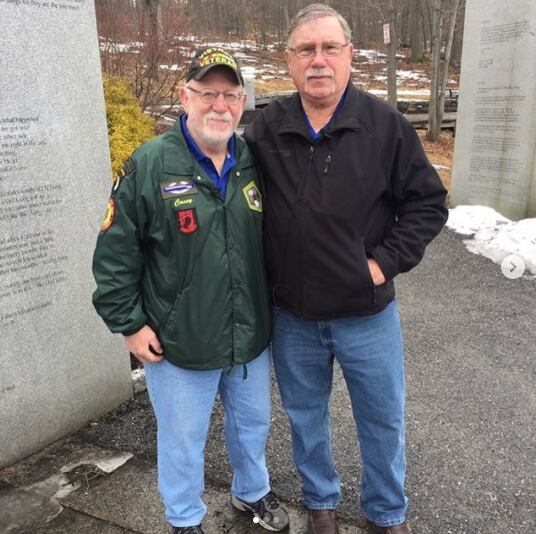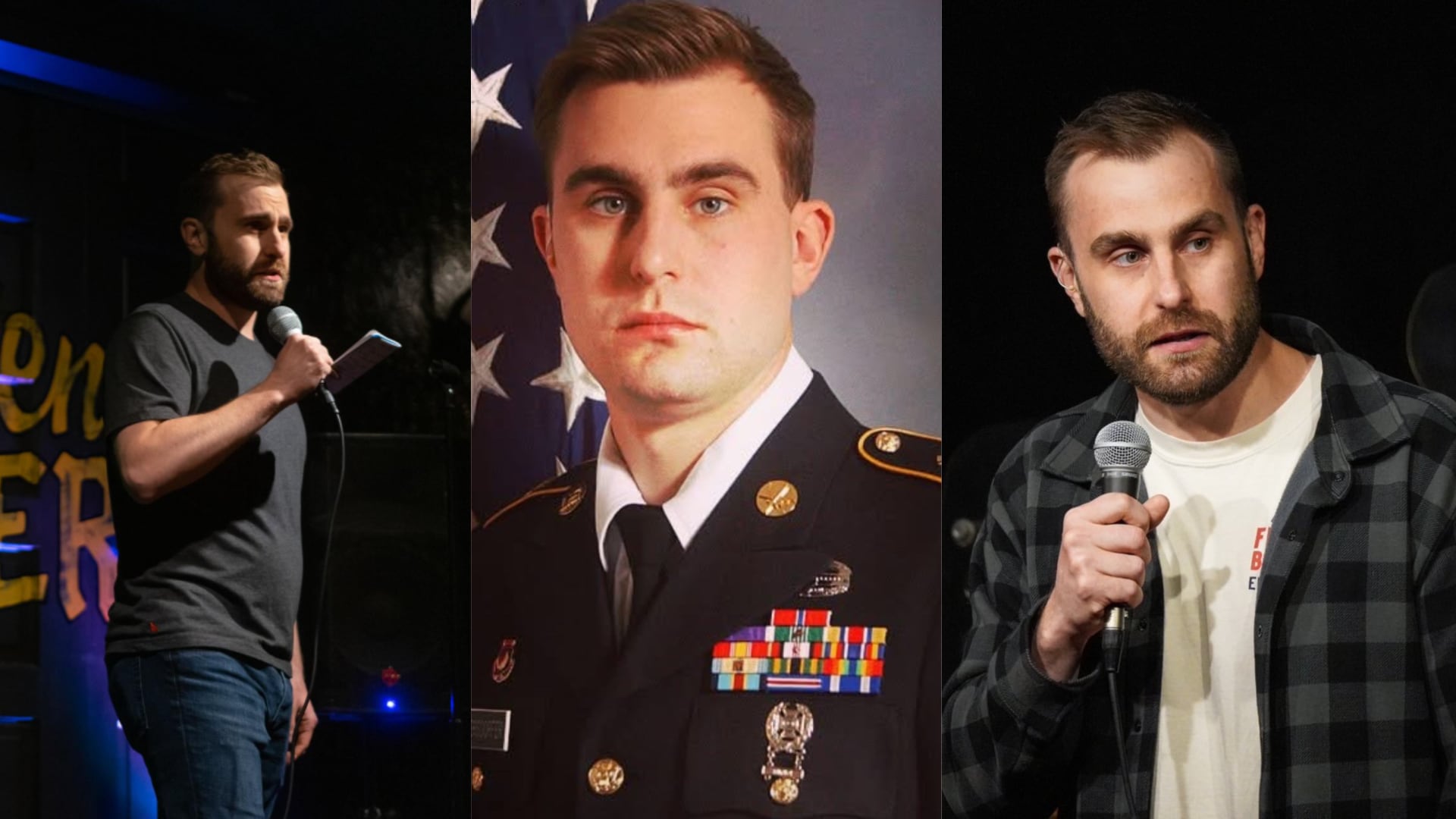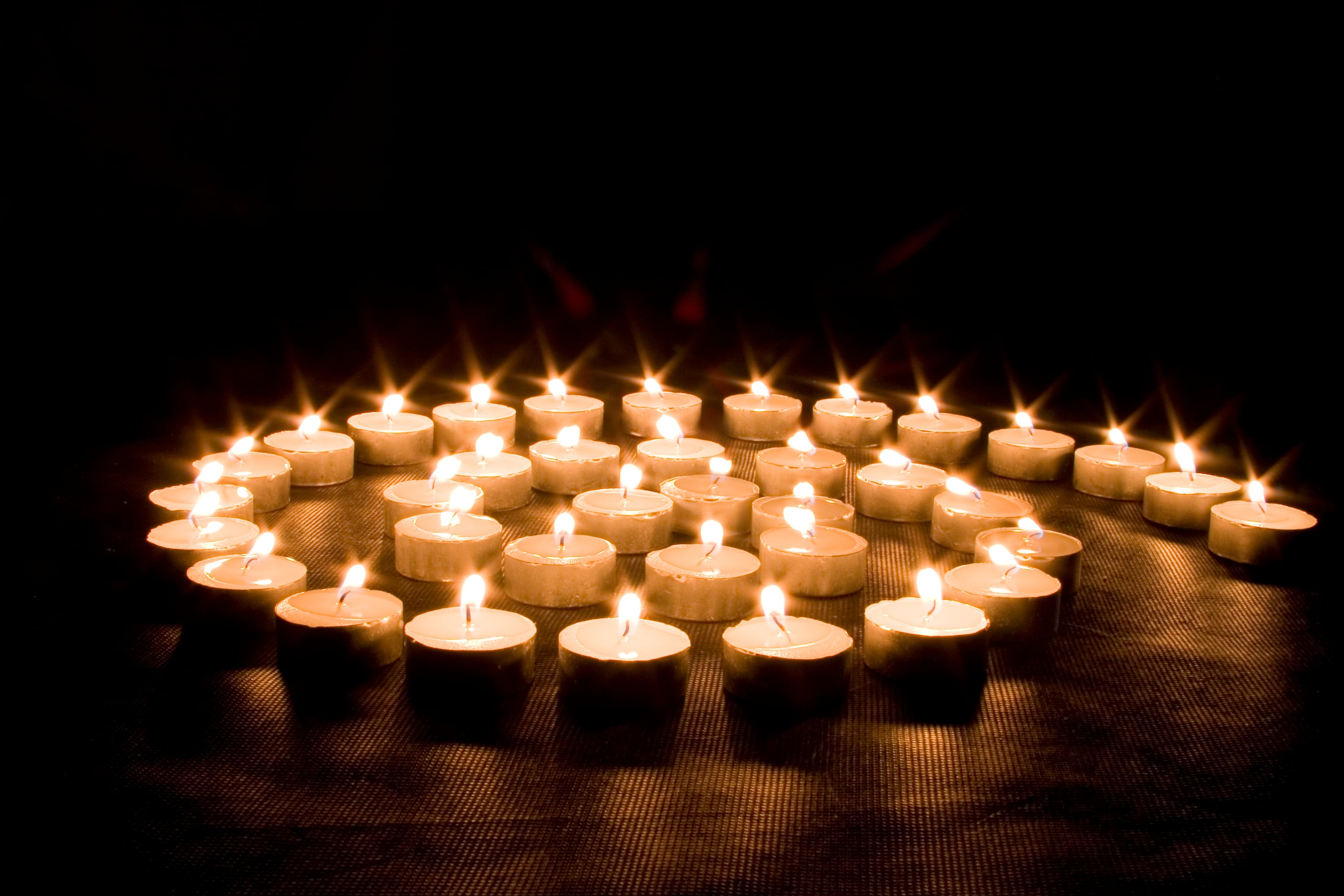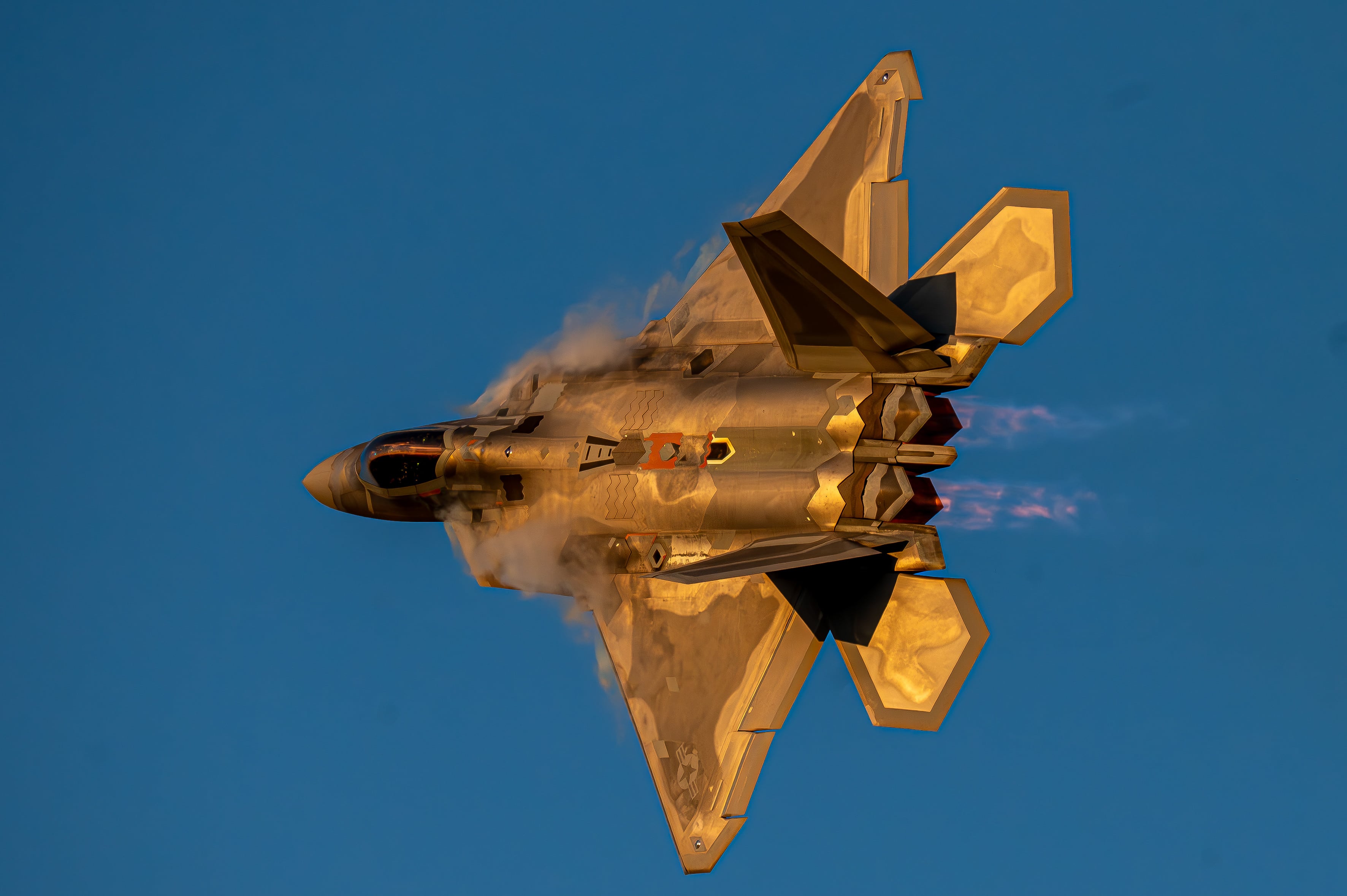Ryan Kern is looking for photos. It is a tireless pursuit that has taken the former Nevada-based journalist all the way to doorsteps across Massachusetts, each home belongs to a family member of a veteran who was killed in the Vietnam War.
His mission is to preserve the images and stories of names adorning the Wall of Faces, an initiative started in 2009 by the Vietnam Veterans Memorial Fund to collect photographs of each of the 58,276 veterans named on the wall in Washington. Today, only about 100 pictures still need to be unearthed, Kern said. It is this search that recently became the topic of his podcast, “Finding Faces.”
Kern, a former TV news anchor, first developed the idea to locate and tell the individual stories behind the missing photos nearly three years ago while on assignment documenting the first all-Vietnam veterans Honor Flight out of Nevada. There, Kern met a VVMF worker who told him about the Wall of Faces initiative.
“I thought, ‘Whoa, there could be an interesting gold mine of stories there that are just crazy important,’” Kern told Military Times.
Twelve missing photos belonging to Nevada-based veterans remained at the time of Kern’s Wall of Faces discovery. So, upon his return to the Reno news station where he worked, he pitched the series: He would find and interview living relatives of the picture-less fallen across the state.
The station’s producers, however, rejected the series. But Kern remained undeterred.
“I just held on to the idea and always thought about making it happen,” Kern recalled.
The opportunity to pursue the years-old concept finally presented itself in 2018, when Kern moved with his girlfriend to Massachusetts for a job she’d recently accepted.
“When we got here, I looked up how many pictures were missing in New England or Massachusetts ... and there were 30. I thought ‘What a perfect number to pursue a project for.’”
Kern began making inquiries through phone calls, knocking on doors, flipping through yearbooks and reading obituaries. But first, he needed a guide to navigate the unfamiliar world of military jargon.
“I needed someone to be the ‘know person’ that I could ask questions to or who could explain or understand what some people are talking about when I wouldn’t,” said Kern.
When he contacted his county’s veterans service officer and explained what he was looking for, the recommendation was immediate: Worcester, Massachusetts, native Phil Madio — so long as strong language wasn’t a problem for Kern.
“Phil just right away started dropping f-bombs to the right and left, and I was like, ‘Oh, this guy’s perfect,’” Kern joked.
Madio’s sole demand in being a part of the effort was that Casey Polaski, another Vietnam veteran from Worcester, would join them. Kern had only planned for one veteran to assist, but Madio’s request wasn’t up for debate.
The team of three met in February 2019, and within weeks they had found their first picture.

The best method for success, they quickly discovered, was searching door-to-door rather than cold-calling suspected family members, which often resulted in abrupt disconnections. In-person visits, meanwhile, allowed for the sharing of photos, stories, and anything else that came their way.
To date, the group has accounted for about a dozen photos, a few of which were actually updates for veterans who had poor quality photos already uploaded to the Wall of Faces. Kern believes the podcast part of the effort has also been instrumental in adding photos to the collection. Some families, he said, didn’t want to participate in the podcast but agreed to share imagery.
“I don’t want to push anyone to participate in this if they don’t want to,” Kern said, recognizing how uncomfortable or complex the experience could be for some. “If I come up to you, I’m a stranger holding a mic, and I’m asking you to bring up suppressed memories that you’ve kept tucked away for 50 years.”
Those who did choose to participate discovered the premise of the podcast to be simple: Find the family, find a picture, and see where the story goes. Sometimes, that entails discovering the exact circumstances of a service member’s death to provide their loved ones closure. In another case, Kern not only gave a woman peace by discovering that her brother had not, in fact, been killed by friendly fire, as she had believed for years, but went on to assist her in her search to find her older sister’s lost grave as well.
“Whenever people ask, ‘What do you want to know?’ the answer is always that we’re really just looking for pictures, and whatever comes of the conversation is the story,” said Kern.
It’s this combination of stories on military service, life and emotion that makes Kern believe the podcast is so identifiable for listeners from all backgrounds, not just service members and veterans.
“I like that this podcast can be listened to by anyone who wants to hear either human interest stories or emotions, whether it’s fun, laughing ... or crying. This isn’t just for military folk,” he said.
The podcast, which currently has a two-season deal with Storic Media, is entering its second season. Kern, meanwhile, said he still has no idea where the upcoming season might take him.
“There are no restrictions on where it can be and how it can be told,” he said. "We could stick here in New England and find better pictures that need to be replaced, or we could go to a completely different region, and that’s kind of the beauty of the project.”
Season one of “Finding Faces” is available on your preferred podcast platform.
Harm Venhuizen is an editorial intern at Military Times. He is studying political science and philosophy at Calvin University, where he's also in the Army ROTC program.
Tags:
finding faces podcastvietnam war memorialvietnam wall dcnames on the vietnam wallryan kernstoric mediamilitary podcastsvietnam veterans podcastvietnam veterans wall of faceswall of facesIn Other News














